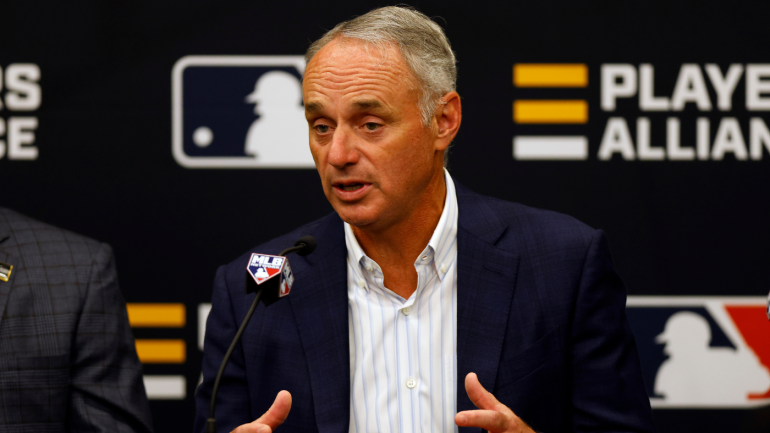
Major League Baseball and the Major League Baseball Players Association recently had their first face-to-face negotiation session in Denver, Colorado as part of their efforts to reach a new collective bargaining agreement ahead of the current one's Dec. 1 expiration date. MLB made an economic proposal to the players association during the session that would alter the league's financial structure, per Evan Drellich and Ken Rosenthal of The Athletic.
According to Drellich and Rosenthal, the league's proposal would "lower the first luxury-tax threshold in the sport to $180 million" while upping the overage penalty. Additionally, the league would institute a "salary minimum of $100 million," with the "money collected from teams paying tax" going to certain teams to help them meet the minimum.
Much of the proposal's finer workings are unknown; they'll likely remain that way, given the nature of negotiations. Still, this doesn't appear to be a winner for the players association based on what details are available.
If the $100 million luxury tax payroll floor were in place for this season, seven teams would've had to spend more money ahead of Opening Day to meet it, according to Drellich and Rosenthal. Yet there's another side to consider: several teams would've had to spend less in order to get under the $180 million luxury-tax threshold. If the last few years have proven anything, it's that teams will gladly treat the luxury tax like a hard salary cap.
It should be noted that there's little empirical evidence supporting the notion that salary caps promote competitive balance; they're far more effective in suppressing salaries, as they impose artificial restraints on the richest teams.
Again, it's unlikely that this exact proposal will wind up as part of the next CBA. It is evidence, however, that MLB is open to adding a salary floor if it makes sense for the owners and their profit margins.






















